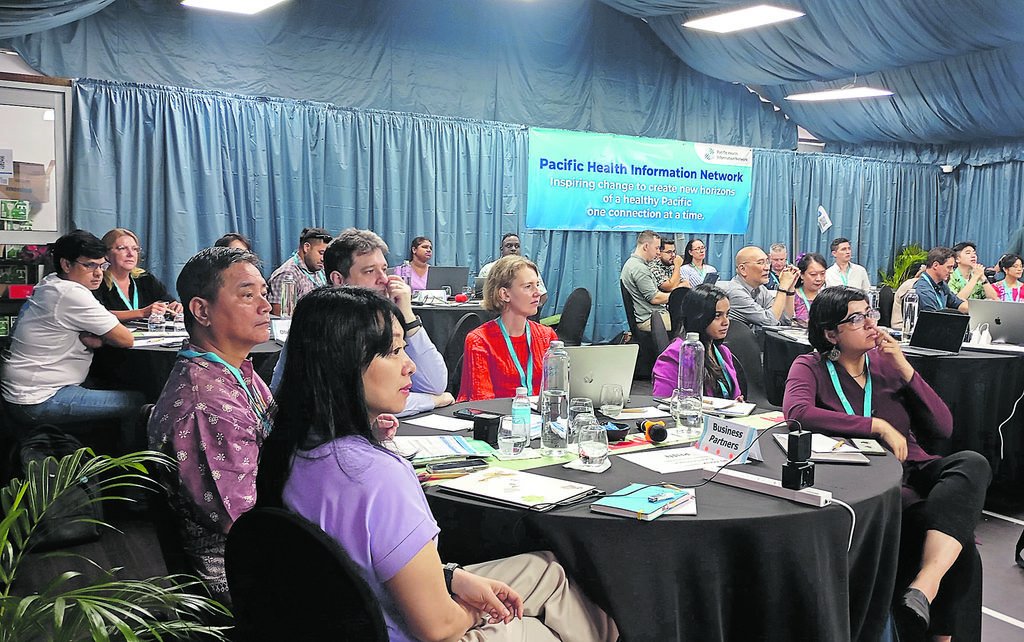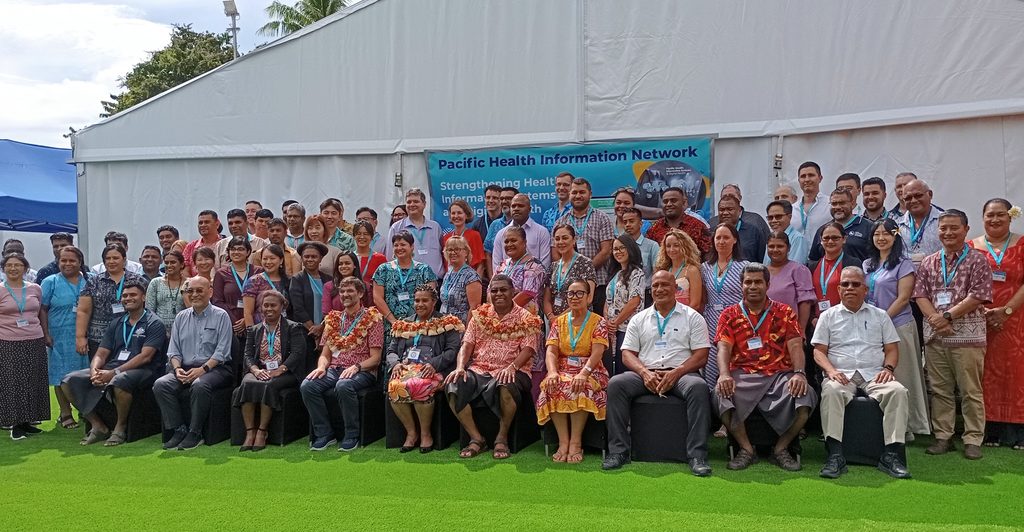THE champions in the health sector’s information technology departments are the key individuals who drive change, says Health and Medical Services Permanent Secretary Dr Jemesa Tudravu.
Speaking at the recent Pacific Health Information Network meeting at the Tanoa International Hotel in Nadi, he said this was why the ministry set about restructuring its human resources to create a more agile, responsive unit equipped to meet the demands of digital health care.
“Under infrastructure, networks and connectivity, enhancing our digital backbone has been a top priority,” he said.
“We have expanded and upgraded our networks, ensuring that even remote health facilities can benefit from reliable high-speed connectivity.
“These improvements not only facilitate real-time data sharing and telehealth services, but also support the expansion of our digital health initiatives.
“On hardware upgrades, in our pursuit of modernising healthcare deliveries, we have significantly upgraded our hardware infrastructure. Through World Bank investment and support we have procured advanced PCs and biomedical equipment.”
Dr Tudravu said infusion of resources meant that Fiji’s health facilities operated with state-of-the-art technology, thereby improving diagnostics, treatment, and patient management.
“On software enhancement, our deployment of critical software systems such as MSupply for pharmaceutical inventory management and NMDSS for disease surveillance has streamlined operations and enhanced our ability to respond to public health challenges.”
Dr Tudravu said those systems ensured the ministry’s digital health tools were efficient and interconnected, facilitating seamless data exchange among platforms.
“On process improvement, at our recent national health executive committee meeting, we have endorsed two key IT policies on hardware utilisation in the industry.
“We need some more policies, and in future policies, we will focus on clear data privacy, security, and interoperability guidelines, critical elements in successfully implementing a national digital health strategy.”
Dr Tudravu said the ministry had seen the need to align implementation approaches with key foundations of the digital health ecosystem by developing, adopting, and adapting international digital health standards.
This allowed interoperability to facilitate seamless data exchange for better patient care, public health surveillance, and efficient resource allocation.
Participants of the Pacific Health Information Network meeting at the Tanoa International Hotel in Nadi on March 24,2025. Picture: SALOTE QALUBAU



